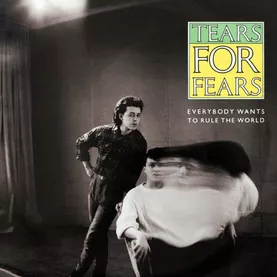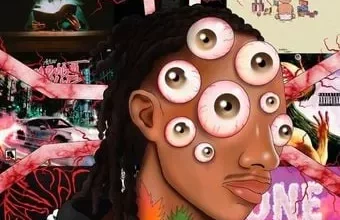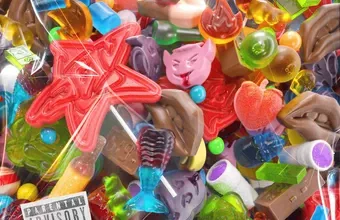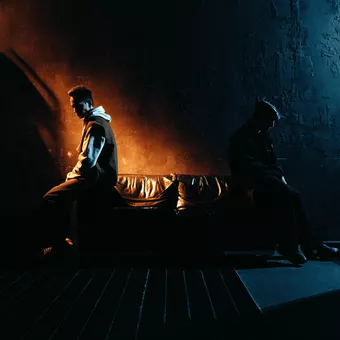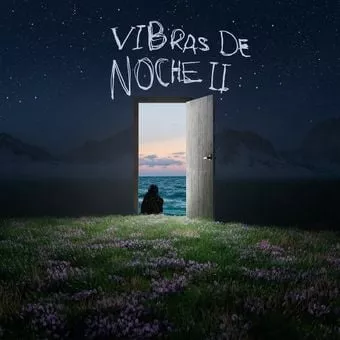Tears for Fears – Everybody Wants to Rule the World Lyrics
Welcome to your life
There’s no turning back
Even while we sleep
We will find you[Chorus: Curt Smith & Roland Orzabal]
Acting on your best behaviour
Turn your back on Mother Nature
Everybody wants to rule the world
[Verse 2: Curt Smith]
It’s my own design
It’s my own remorse
Help me to decide
Help me make the
[Chorus: Curt Smith & Roland Orzabal]
Most of freedom and of pleasure
Nothing ever lasts forever
Everybody wants to rule the world
[Bridge: Curt Smith & Roland Orzabal]
There’s a room where the light won’t find you
Holding hands while the walls come tumbling down
When they do, I’ll be right behind you
So glad we’ve almost made it
So sad they had to fade it
Everybody wants to rule the…[Instrumental Break]
[Chorus: Curt Smith & Roland Orzabal]
I can’t stand this indecision
Married with a lack of vision
Everybody wants to rule the—
Say that you’ll never, never, never, never need it
One headline, why believe it?
Everybody wants to rule the world
All for freedom and for pleasure
Nothing ever lasts forever
Everybody wants to rule the world
Everybody Wants To Rule The World by Tears for Fears
“Everybody Wants to Rule the World” is a song by the British band Tears for Fears, featured on their album “Famous Last Words: The Collection,” released in 1982. This track became one of their most iconic hits, reaching #2 in the UK and topping charts in the US, Canada, and New Zealand.
Quick summary
The song delves into the themes of power, control, and the universal human desire for dominance, reflecting on the complexities of ambition and the transient nature of authority.
In-depth lyrics analysis
The opening lines of the song, “Welcome to your life, there’s no turning back,” set a tone of inevitability and acceptance. This phrase suggests that once one embarks on the journey of life, particularly in the pursuit of power, there is no retreat. The idea of a life without a second chance resonates with listeners, as it speaks to the human condition of making choices that shape our destinies.
As the chorus kicks in with the repeated line, “Everybody wants to rule the world,” it encapsulates the central theme of the song: the universal ambition for control and authority. This desire is not limited to a specific group or individual; rather, it is a shared aspiration that transcends boundaries. The repetition of this line emphasizes its significance, making it a catchy yet profound statement about human nature.
The verses further explore the consequences of this ambition. Lines that reflect on personal design and remorse highlight the internal struggles faced by individuals in their quest for power. The lyrics suggest that while the pursuit of dominance may seem appealing, it often comes with a heavy burden of regret and moral dilemmas. This duality creates a sense of melancholy, as the song acknowledges that the desire to rule can lead to isolation and conflict.
Moreover, the instrumentation of the song plays a crucial role in conveying its message. The atypical shuffle beat, which deviates from the band’s usual style, adds a layer of complexity to the song. The droning E note, reminiscent of traditional Indian music, creates a hypnotic effect that mirrors the cyclical nature of power struggles. This musical choice enhances the lyrical themes, suggesting that the quest for control is both alluring and ultimately transient.
The bridge of the song introduces a reflective tone, urging listeners to consider the fleeting nature of power. Phrases that hint at the challenges of decision-making and the inevitability of change serve as a reminder that no one can maintain control indefinitely. This acknowledgment of impermanence adds depth to the song, transforming it from a mere anthem of ambition into a contemplative piece about the human experience.
In conclusion, “Everybody Wants to Rule the World” is a multifaceted exploration of power and ambition. Its catchy melody and thoughtful lyrics resonate with listeners, making it a timeless reflection on the complexities of human desire and the societal structures that govern our lives. The song’s ability to balance optimism with melancholy ensures its relevance across generations, inviting listeners to ponder their own aspirations and the consequences that accompany them.

